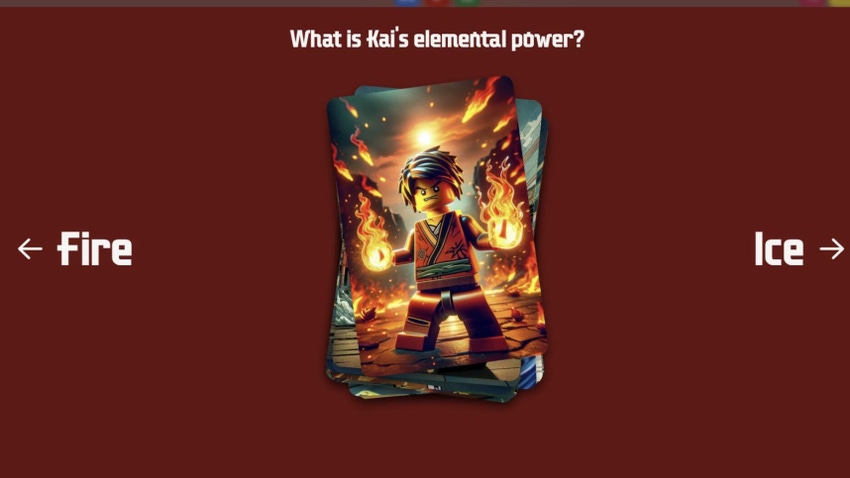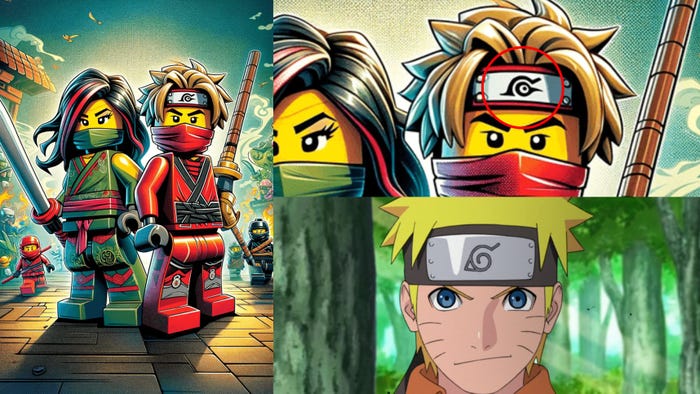
Lego is addressing concerns following the discovery that AI-generated artwork for its Ninjago toy line inadvertently included elements of intellectual property for which it did not hold a license.
Lego posted a series of AI-generated images of Ninjago characters on its website used as part of an online quiz.
Among them was a character featured wearing a headband from the Japanese manga Naruto, an intellectual property for which Lego does not hold a license.

The images were eventually removed, but not before they were widely shared on social media.
Ninjago co-creator Tommy Andreasen said on X (formerly known as Twitter) that the images were “just lousy in all aspects.”
“There are actual guidelines against the use of AI like this at LEGO so this is completely unacceptable. Art should be made by artists,” Andreasen added.
In a statement sent to Axios, Lego said the images were part of a test that “happened outside of our usual approval processes."
"We have a clear policy not to use generative AI to create LEGO content," the company said, adding that the incident would not happen again.
AI artwork is a divisive topic across the internet. Many online are against it due to the impact on the livelihoods of creative people as well as potential liability for copyright infringement.
The backlash against Lego follows a similar controversy after Wizards of the Coast, the publisher of Dungeons & Dragons, included AI-generated artworks in an expansion released last August.
Read more about:
ChatGPT / Generative AIAbout the Author(s)
You May Also Like


.jpg?width=700&auto=webp&quality=80&disable=upscale)
.jpg?width=700&auto=webp&quality=80&disable=upscale)
.jpg?width=700&auto=webp&quality=80&disable=upscale)
.jpg?width=300&auto=webp&quality=80&disable=upscale)
.jpg?width=300&auto=webp&quality=80&disable=upscale)
.jpg?width=300&auto=webp&quality=80&disable=upscale)
.jpg?width=300&auto=webp&quality=80&disable=upscale)
.jpg?width=300&auto=webp&quality=80&disable=upscale)